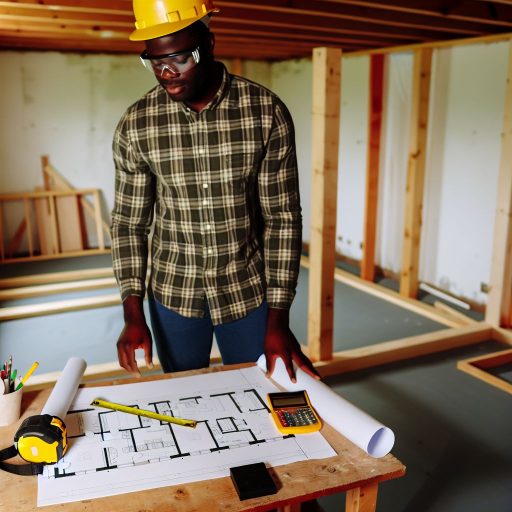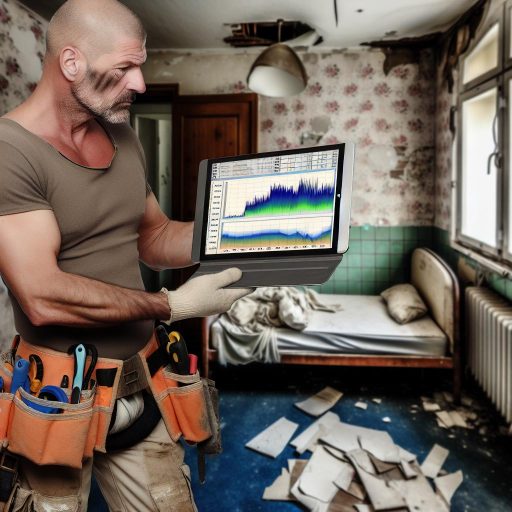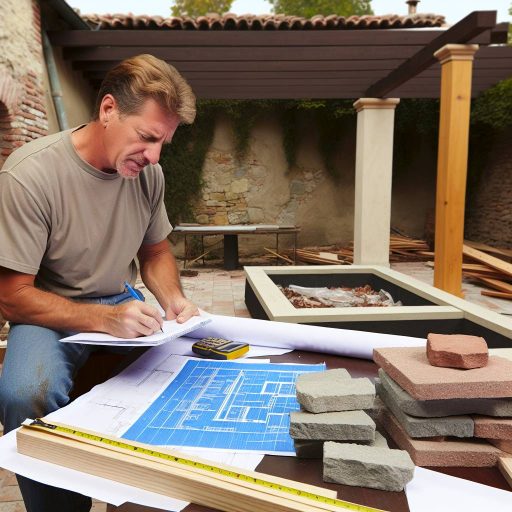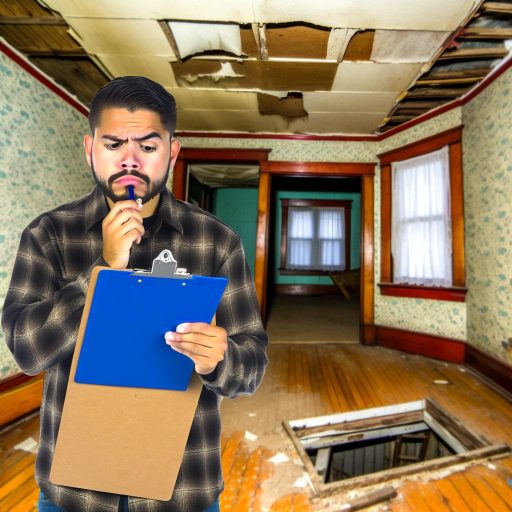Introduction to Sustainable Home Renovation
Definition of Sustainable Home Renovation
Sustainable home renovation focuses on environmentally friendly practices.
It involves upgrading homes while reducing negative environmental impacts.
This approach prioritizes energy efficiency and resource conservation.
Homeowners often seek sustainable materials for their renovations.
Key features include using recycled materials and energy-efficient appliances.
Importance of Sustainable Home Renovation
Sustainable renovation contributes to reducing carbon footprints.
It helps combat climate change by lowering energy consumption.
Moreover, it enhances indoor air quality, benefiting residents’ health.
These renovations often increase property values in real estate markets.
As demand for eco-friendly homes rises, so does their market appeal.
Current Trends in Sustainable Materials
Popular Sustainable Materials
Wood is a highly favored sustainable material for renovations.
Reclaimed wood adds character while reducing waste.
Bamboo is another excellent option due to its rapid growth.
It provides durability and a modern aesthetic.
Recycled metal is gaining popularity for roofing and fixtures.
This material reduces environmental impact and offers sleek designs.
Additionally, recycled glass creates stunning surfaces and features.
Benefits of Using Sustainable Materials
Using sustainable materials enhances energy efficiency in homes.
These materials typically have lower carbon footprints.
They contribute to healthier indoor air quality for occupants.
Natural materials often contain fewer harmful chemicals.
Moreover, sustainable materials frequently offer long-term cost savings.
They require less maintenance and improve home longevity.
Challenges in Sourcing Sustainable Materials
One challenge is the higher upfront costs.
However, these costs can be offset by energy savings over time.
Another concern is the availability of local materials.
Homeowners may need to research sources to find suitable options.
Further, some sustainable materials may require specialized installation.
Finding skilled professionals can add to project costs.
Future Directions in Sustainable Materials
Innovation is driving the development of new sustainable materials.
Researchers are exploring bio-based materials for construction.
Additionally, local sourcing continues to gain traction.
This movement supports regional economies and reduces transportation emissions.
As technology improves, more affordable options should emerge.
Ultimately, adopting these materials can significantly benefit the environment.
Energy-Efficient Upgrades
Solar Power
Solar power systems significantly enhance a home’s energy efficiency.
These systems convert sunlight into electricity for residential use.
Homeowners can lower utility bills with solar power installations.
Furthermore, various tax incentives are available for solar investments.
This makes solar energy a financially attractive option.
Often, homes equipped with solar panels increase in market value.
Buyers are drawn to energy-efficient homes with renewable resources.
Insulation Improvements
Proper insulation plays a vital role in energy conservation.
Upgraded insulation reduces heating and cooling costs significantly.
Materials like spray foam and cellulose are popular options.
Effective insulation enhances indoor comfort throughout the year.
Homeowners also benefit from an enhanced home resale value.
Real estate agents often highlight energy-efficient features in listings.
Thus, high-quality insulation represents a smart investment.
HVAC Systems
Modern HVAC systems deliver superior energy efficiency.
Upgrading to smart thermostats and energy-efficient units is wise.
These systems optimize energy use based on home occupancy.
Newer models also reduce carbon footprints effectively.
Energy-efficient HVAC systems attract eco-conscious buyers.
Additionally, they offer significant long-term savings on energy bills.
Investing in these technologies leads to a healthier living environment.
Find Out More: Renovation Cost Estimation for First-Time Homebuyers
Water Conservation Techniques: Eco-friendly Plumbing and Landscaping
Efficient Plumbing Solutions
Modern plumbing solutions play a crucial role in water conservation.
Low-flow fixtures significantly reduce water usage without sacrificing performance.
Moreover, dual-flush toilets offer the option of using less water for liquid waste.
Integrating aerators in faucets can also minimize water flow effectively.
In addition, smart irrigation systems adjust watering schedules based on weather conditions.
Eco-friendly Landscaping Practices
Landscaping contributes significantly to water conservation efforts.
Native plants require less water and are well-suited to local climates.
Incorporating xeriscaping principles can also reduce the need for irrigation.
Furthermore, mulching helps retain moisture in the soil and suppresses weeds.
Installing rain gardens can capture runoff and improve water absorption.
Innovative Technologies for Water Management
Smart Water Meters
Smart water meters help homeowners track their water usage in real time.
This technology provides alerts for leaks or unusual spikes in consumption.
Consequently, homeowners can address issues promptly, preventing excess waste.
Rainwater Harvesting Systems
Rainwater harvesting systems collect and store rainwater for reuse.
Homeowners can use this water for irrigation, reducing reliance on municipal sources.
Additionally, these systems can help mitigate stormwater runoff issues.
Community Impact and Awareness
Encouraging Community Initiatives
Communities can promote water conservation through various initiatives.
Workshops and educational programs raise awareness about water-saving techniques.
Moreover, local regulations may incentivize sustainable landscaping practices.
The Role of Real Estate Professionals
Real estate professionals can influence sustainable renovation trends.
They can emphasize the value of eco-friendly features in listings.
Additionally, educated buyers are increasingly seeking homes with water-saving attributes.
This market preference can lead to better resale values for sustainable homes.
Find Out More: Sustainable Building Materials for Energy-Efficient Home Renovations
The Role of Smart Technology in Sustainable Renovations
Introduction to Smart Technology
Smart technology transforms traditional renovation approaches.
It enhances efficiency while minimizing resource use.
Homeowners increasingly embrace these innovative solutions.
Energy Management Systems
Energy management systems play a vital role in sustainability.
They monitor and optimize energy consumption automatically.
For instance, smart thermostats adjust temperatures based on occupancy.
This feature significantly reduces energy waste.
Moreover, homeowners can control systems remotely via mobile apps.
Water Efficiency Solutions
Smart technology also improves water efficiency in homes.
Intelligent irrigation systems adapt watering schedules to weather conditions.
This reduces water wastage and helps maintain healthy gardens.
Moreover, smart leak detection systems alert homeowners to issues early.
This prevents costly repairs and water damage.
Intelligent Lighting Solutions
Lighting consumes a significant portion of household energy usage.
Smart lighting solutions can reduce this consumption dramatically.
Homeowners can program lights to turn off when rooms are unoccupied.
Additionally, utilizing LED bulbs enhances energy efficiency.
These technologies contribute to lower energy bills over time.
Home Automation and Integration
Smart home automation integrates various systems seamlessly.
Homeowners can manage lighting, heating, and security systems together.
This integration leads to optimized energy usage across the board.
Furthermore, automation improves overall convenience for residents.
Impact on Real Estate Value
Sustainable renovations using smart technology boost property values.
Buyers increasingly seek energy-efficient and environmentally friendly homes.
Smart technology features can serve as unique selling points.
Such homes often attract premium pricing in competitive markets.
Ultimately, the integration of smart technology benefits homeowners financially and environmentally.
Explore Further: A Comprehensive Guide To Renovation Cost Estimation For U.S. Real Estate
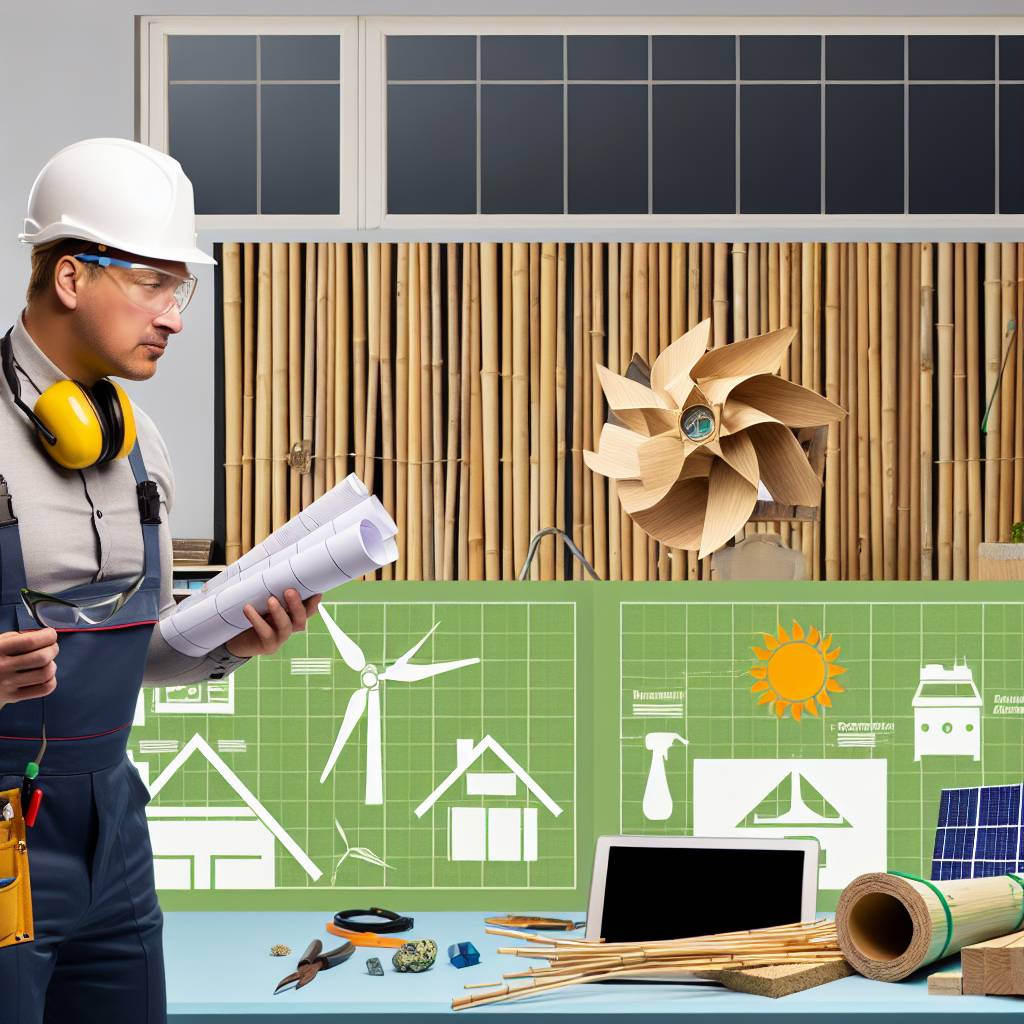
Impact of Sustainable Renovations on Property Value and Market Appeal
Increasing Property Value
Sustainable renovations significantly enhance property value.
Homebuyers increasingly prioritize energy-efficient features.
Installations like solar panels attract higher offers.
Furthermore, energy-efficient appliances reduce utility costs.
This leads to overall greater appeal in the market.
Attracting Eco-Conscious Buyers
Eco-conscious buyers actively seek sustainable homes.
The demand for green features continues to grow.
Renovations such as green roofs contribute positively.
Also, reclaimed materials resonate with environmentally focused homeowners.
Essentially, sustainable design fosters a sense of responsibility.
Market Trends and Preferences
Recent data shows shifting preferences in home purchasing.
Many buyers now view sustainable renovations as essential.
Energy-efficient homes often sell faster than traditional homes.
According to the National Association of Realtors, green features increase appeal.
In addition, market trends indicate higher resale values for these properties.
Long-Term Investment Benefits
Sustainable renovations provide long-term investment benefits.
Homeowners save on energy and maintenance costs over time.
Moreover, tax incentives support sustainable upgrades.
This adds financial allure to eco-friendly investments.
Consequently, prioritizing sustainability can yield significant returns.
Uncover the Details: Renovation Cost Estimation for Increasing Home Resale Value
Government Incentives and Rebates for Sustainable Renovations
Understanding Government Incentives
Government incentives encourage homeowners to adopt sustainable renovation practices.
These incentives come in various forms, such as tax credits and rebates.
Homeowners can reduce their overall renovation costs by leveraging these programs.
Additionally, local, state, and federal governments may offer different incentives.
Types of Incentives Available
Tax credits allow homeowners to deduct specific costs from their taxes.
This deduction can significantly decrease the financial burden of sustainable projects.
Rebates provide direct cash back for eco-friendly home improvements.
Energy efficiency rebates often target appliances, insulation, and heating systems.
Furthermore, grants may fund entirely new renewable energy systems.
Eligibility and Application Process
Eligibility for these incentives often depends on specific criteria.
Homeowners must check local programs for exact rules and requirements.
Typically, documentation proving the use of sustainable materials is required.
Application processes can vary, often involving detailed project descriptions.
Additionally, some programs may require pre-approval before renovations begin.
Impact on Real Estate Value
Incentives for sustainable renovations can enhance a home’s resale value.
Buyers increasingly seek energy-efficient homes with lower operating costs.
Renovations funded through these incentives may attract potential buyers.
Moreover, homes equipped with sustainable features often sell faster.
Case Studies and Success Stories
Many homeowners successfully benefited from government incentives.
Alice and Tom renovated their home, incorporating solar panels and insulation.
They received a substantial tax credit, reducing their renovation expenses.
As a result, their home’s value increased, attracting high offers during selling.
This illustrates how strategic renovations funded through incentives pay off.
Case Studies: Successful Sustainable Renovation Projects and Their Outcomes
Introduction to Successful Projects
Sustainable renovations have gained traction in recent years.
These projects often result in lasting benefits for homeowners and communities.
They enhance property values while promoting environmental responsibility.
Case Study One: The Green Home Project
The Green Home Project transformed a dated bungalow in a suburban neighborhood.
It utilized reclaimed materials and energy-efficient technologies.
The homeowners, Sarah and Michael, implemented solar panels and improved insulation.
As a result, their energy bills decreased significantly.
Furthermore, the renovations increased their home’s market value by 25%.
Case Study Two: Urban Renewal Initiative
The Urban Renewal Initiative focused on revitalizing an old factory building.
This project converted the space into eco-friendly apartments.
Project leader, Emily Chen, prioritized sustainable building practices.
She utilized low-VOC paints, recycled materials, and energy-efficient appliances.
As a result, the initiative attracted young professionals and families.
This boosted not only property value but also community engagement.
Case Study Three: The Passive House Movement
The Passive House movement aims to create buildings with minimal energy consumption.
A family in Portland, Oregon, embraced this movement with their renovation.
They installed triple-glazed windows and embraced optimal insulation techniques.
This approach reduced their heating costs by over 80%.
Consequently, the house appraised at nearly 15% above market value.
Community Impact of Sustainable Renovations
Sustainable renovations often inspire neighborhood transformations.
They set a precedent for future renovations and developments.
Communities become more attractive to eco-conscious homebuyers.
Long-Term Benefits of Sustainable Renovations
These projects often lead to increased energy efficiency.
They can contribute to lower greenhouse gas emissions over time.
Moreover, they foster a sense of community through shared sustainability goals.
Ultimately, sustainable renovations create lasting impacts on real estate markets.
Additional Resources
Energy Efficiency in Sustainable Buildings: A Systematic Review …

